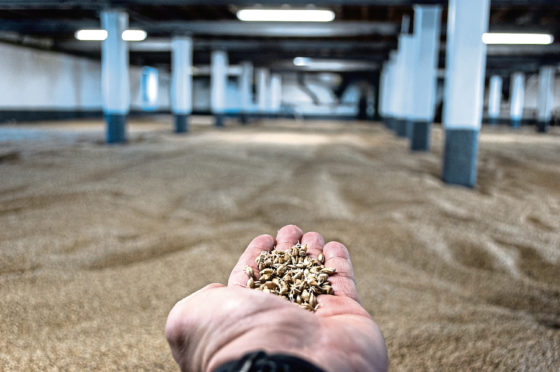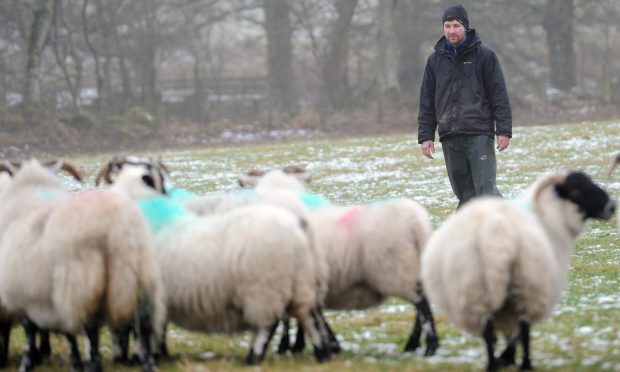Scottish growers have been told harvest may not be business as usual due to ongoing Covid-19 restrictions.
One of the industry’s main customers – the whisky sector – is not yet fully up and running again since coronavirus-imposed shutdowns and in many cases production has moved away from whisky to producing alcohol hand sanitiser for the NHS and other public services.
The Scotch Whisky Association says both these factors are impacting demand for grain.
A spokeswoman for the association said: “Distilling is currently significantly scaled back so that companies can ensure that social distancing can be fully observed by staff, whose health and wellbeing is our primary concern.
“We are in a regular dialogue with NFU Scotland (NFUS) and the Scottish Government about levels of distilling, not least since this is impacting on distillers’ demand for barley.”
She said the collapse of the global hospitality, tourism and travel retail sectors had resulted in a 17% drop in Scotch whisky exports in the first quarter of 2020.
“Exports in the second quarter, which will take into account lockdown periods in Europe and North America, are also likely to show a significant fall,” added the spokeswoman.
She said all eyes were on the restart of trade in the hospitality and tourism sectors in the UK and across global export markets.
“The Scotch whisky industry will continue to work with farmers and NFUS to ensure that our industries are aligned as the response to Covid-19 evolves, and we will work with government to ensure that they understand where difficulties will arise and what they can do to help,” added the spokeswoman.
“This includes examining how the current situation will affect future demand for grain later in the year.”
Meanwhile, NFUS combinable crops chairman Willie Thomson says Covid-19 rules may cause delays in hauliers getting grain off farms at harvest.
Mr Thomson, who farms in East Lothian, has advised growers to “prepare for the worst and hope for the best”.
He said: “The real worry is going to be not getting barley moved off the farm.
“A lot of farmers have capacity to have their barley and wheat in on-farm storage, but some really rely on the malting barley being shifted.
“Everyone has to be aware that it probably won’t be business as usual and there could be hold-ups, even with the sampling of grain.”









